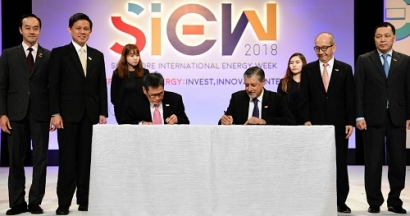
Under the agreement, IRENA and ASEAN will work to strengthen the environment enabling more renewable energy investment and deployment as ASEAN pursues a target of 23 percent of primary energy from renewables by 2025. Based on IRENA analysis, achieving the target will require an estimated annual investment of $27 billion, equivalent to one percent of regional GDP, for the next eight years – a tenfold increase on 2016 investment volumes.
“Southeast Asia is a dynamic and rapidly evolving region with strong economic growth, rising incomes and growing populations, factors that will increase regional demand for power,” said Amin. “Renewables will be the key to addressing this growing demand and ensuring energy security, while powering the inclusive and sustainable economic development of the region.”
Accelerating the deployment of renewable energy offers enormous socio-economic benefits to the region, including the development of new value chains, job creation and improved livelihoods. In Southeast Asia, employment in the renewable energy sector currently stands at around 600,000. A scale-up of renewables in the region has the potential to create an estimated two million jobs by 2030.
The partnership will see IRENA and ASEAN Energy Ministers work closely across a number of key implementation focus areas, including:
IRENA has worked closely with the ASEAN Centre for Energy and ASEAN to find ways to accelerate renewable energy deployment across the region. An IRENA and ACE Renewable Energy Outlook for ASEAN report, released in 2016, shows that ASEAN’s renewables target is attainable. The report found that renewable energy in the region can bring lower overall costs, contribute to cleaner cities, and support a more secure and robust energy supply.

